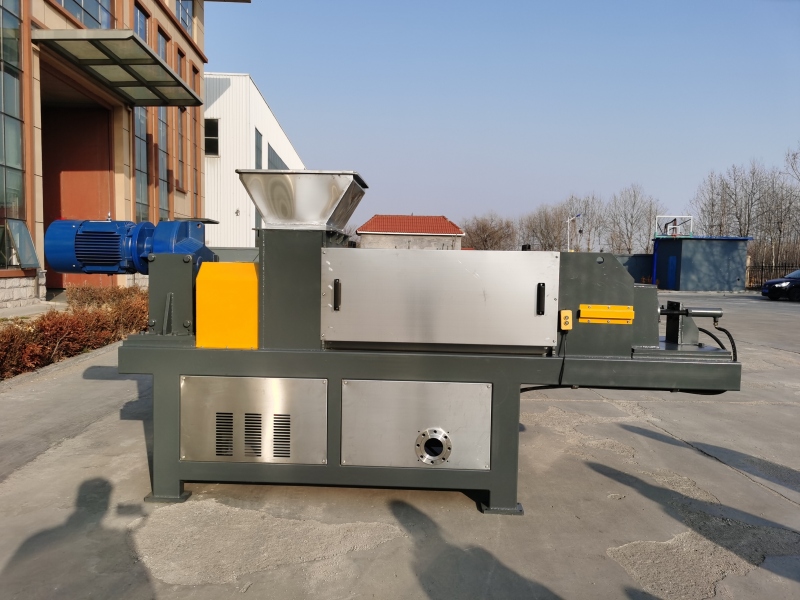
In the face of global challenges related to food waste and environmental sustainability, innovative technologies play a crucial role in mitigating the impact of these issues. One such technology is the Waste Food Residue Dewatering Machine, a revolutionary solution designed to efficiently process and recover resources from food waste residues. This article explores the key features, benefits, and applications of this eco-friendly machine.
Key Features:
High Dewatering Efficiency:
The dewatering machine employs advanced technology to extract moisture from food residues, significantly reducing their volume. This high dewatering efficiency not only minimizes the weight and bulk of the waste but also facilitates easier handling and transportation.
Versatile Application:
Waste food residue dewatering machines are versatile and can process a wide range of food waste, including kitchen scraps, leftover fruits and vegetables, and food processing by-products. This versatility makes them suitable for various settings, such as restaurants, food processing units, and municipal waste facilities.
Resource Recovery:
By removing excess water content, the dewatering machine enhances the potential for resource recovery. The concentrated food waste can be further processed for the extraction of valuable components, such as organic matter for composting or bioenergy production.
Reduced Environmental Impact:
The efficient dewatering of food residues contributes to a reduction in greenhouse gas emissions associated with decomposition. Additionally, by facilitating resource recovery, the machine minimizes the need for additional landfills and promotes a more sustainable waste management approach.
Benefits:
Cost Savings:
The dewatering process reduces the weight and volume of food waste, resulting in cost savings related to transportation and disposal fees. Businesses and municipalities can optimize their waste management budgets while adopting a more environmentally responsible approach.
Compliance with Regulations:
As environmental regulations become more stringent, waste food residue dewatering machines assist businesses and institutions in adhering to waste management guidelines. This proactive approach not only ensures compliance but also enhances the organization's environmental reputation.
Contribution to Circular Economy:
By recovering resources from food waste, the dewatering machine aligns with the principles of a circular economy. The extracted materials can be reintroduced into the production cycle, fostering a sustainable and closed-loop approach to waste management.
Conclusion:
The Waste Food Residue Dewatering Machine represents a significant advancement in sustainable waste management. Its high efficiency, versatility, and resource recovery capabilities make it a valuable asset for businesses, municipalities, and institutions seeking to address the challenges posed by food waste. By adopting such innovative technologies, we can move towards a more sustainable and circular approach to managing our resources.




If your company wants to establish a business relationship with us, please briefly describe the cooperation intention and send an email to:chuantaiscrewpress@gmail.com























































































![[list:title]](/static/upload/image/20240528/1716877114510915.jpg)